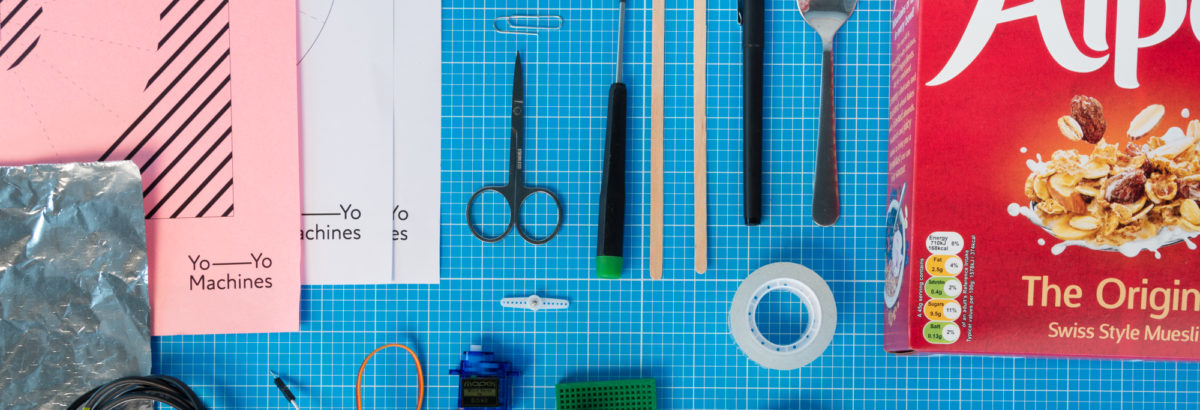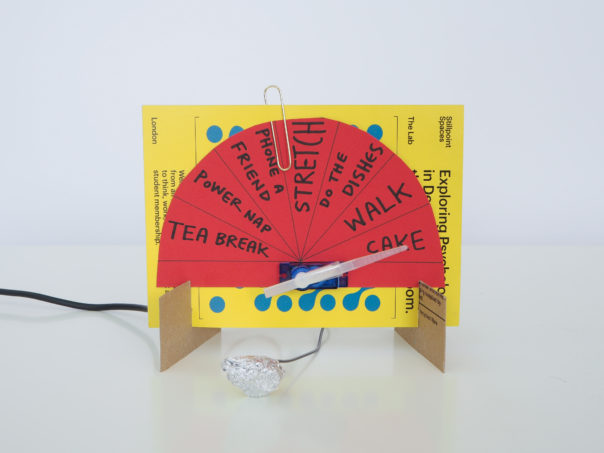Build a Yo-Yo Machine with The Interaction Research Studio


Come and build a Yo-Yo Machine! Yo-Yo machines are playful lo-fi communication devices that allow you to share simple messages with somebody you care about. They are designed to be made at home, and this workshop will show you how.

The Interaction Research Studio will be running drop-in ‘have-a-go’ sessions in the morning and bookable workshops in the afternoon, in which you will be able to build a Yo-yo machine from scratch.
Drop-in workshops running from 11am – 2pm : imagine interactions, build and decorate enclosures
Booking Details
Suitable for ages 12+. Children under 16 must be accompanied by an adult.
This workshop is FREE.
There are 8 places available each session.
The workshops will last approx 1 hour.
These workshops will take place on Saturday only
In the bookable sessions, you will learn to assemble off-the-shelf electronic components to build a full working device. You will also design and make your own enclosure using household materials. Cut, glue and decorate a Yo-yo Machine to imagine new interactions.
The Interaction Research Studio designs playful and innovative technologies for everyday life. Their practice-based research combines expert design and making skills, inventive research methods, and creative technology know-how. This allows them to produce research products unlike anything you’ll find on the high street. The designs embody new ideas about life with and through technologies, creating situations rather than solving problems, and encouraging playfulness, exploration and insight in a wide variety of domains. Their work is inherently interdisciplinary, and their team is happily situated at the London campus of Northumbria University.